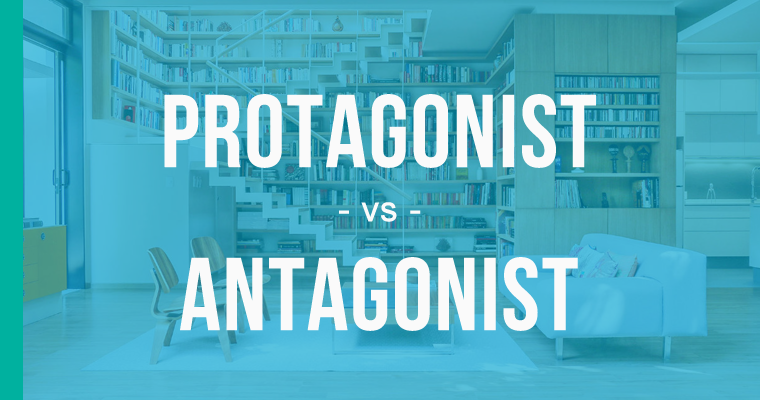Protagonist vs. Antagonist – How to Use Each Correctly

What’s the Difference Between Protagonist and Antagonist?
Contents
Protagonist and antagonist share the same ending, but they have opposite meanings.
Protagonist is a noun that refers to the main character of a literary work. Usually this is the hero or heroine of the story.
- The protagonist of the story has magical powers, which she uses to fight evil.
Antagonist is a noun that describes the person who struggles against the protagonist.
- The book’s antagonist is always trying to kill the hero.
Now, let’s go over a few ways you can use these words in your sentences.
Using Protagonist in a Sentence
When to use protagonist: Protagonist is a noun that typically refers to the primary character in a literary work. Occasionally, it can refer to a leader of a cause.
For example,
- Harry Potter is a young wizard who is the protagonist of a very popular fantasy series.
- Bilbo Baggins is my favorite protagonist across all literature because of how he handles all the challenges that he must face.
- Katniss Everdeen, the protagonist of a young adult story set in a dystopian future, is the hero of many children.
The word protagonist has its origins in Greek. It originally meant the actor who plays the leading role in a play. That actor would often play other smaller roles when the lead character was off stage.
Using Antagonist in a Sentence
When to use antagonist: Antagonist is a noun that means the person who fights against the protagonist in a literary work. It can also mean adversary outside the context of literature.
For example,
- Voldemort and President Snow are two of literature’s most famous antagonists. Both characters struggle to defeat the heroes of their respective stories.
- Some works of literature have antagonists who are pure evil, while others choose to show the antagonists as having positive qualities as well as negative ones.
Antagonist also comes from Greek roots and is derived from the word antagonize, which means to contend against.
Remembering Protagonist vs. Antagonist
It is possible to use the spelling of protagonist and antagonist to distinguish the words from one another.
Protagonist starts with the letters pro. This can remind you of a pros and cons list, in which the pros are all positive. A protagonist in a story is usually the good person, or is trying to do something good. Alternatively, you can think of pro with its original meaning of for. On a pro / con list, the pros list reasons for something. A protagonist is fighting for something.
Antagonist starts with the letters ant, which is a prefix meaning against. This can remind you that the antagonist fights against the protagonist.
Outside Examples
- Cameron says Wonder Woman is “an objectified icon.” He points to Sarah Connor, the gritty protagonist from his Terminator films, as a better role model. –New York Daily News
- “Hamlet,” a play about an overwhelmed young man of brilliant intellect, is also about the choice, as Harold C. Goddard argues in “The Meaning of Shakespeare,” between imagination and violence, art and war. The tragedy, though dominated by its protagonist, transcends mere character study. –LA Times
- After Beisel helped the Tigers pull a 28-24 upset , he continued to relish his role as playful antagonist of Missouri’s cross-divisional rival. –USA Today
- Another question, they said, is whether he would be viewed by Myanmar’s hard-line Buddhist fringe as a neutral peacemaker or a pro-Muslim antagonist. –New York Times
Quiz: Antagonist vs. Protagonist
Instructions: Fill in the blank with the correct word, antagonist or protagonist, in the correct form.
- If you are going to write a novel, you should have an intriguing ________________ with many positive qualities. However, this hero shouldn’t be perfect.
- A good ___________________ should have some motivation for his evil behavior. Why does this character want to defeat the hero?
- Usually the ____________ of a story is fighting against evil, but occasionally this character is the bad guy.
See answers below.
Article Summary
Should I use protagonist or antagonist? These words both refer to the most important characters in a work of literature, although they are opposites.
- Protagonist refers to the main character who usually is fighting to do something good.
- Antagonist refers to the character who opposes the protagonist.
These words most frequently describe characters in literature, but they can also appear in the context of film, especially in dramas.
Answers from Quiz
- protagonist
- antagonist
- protagonist
